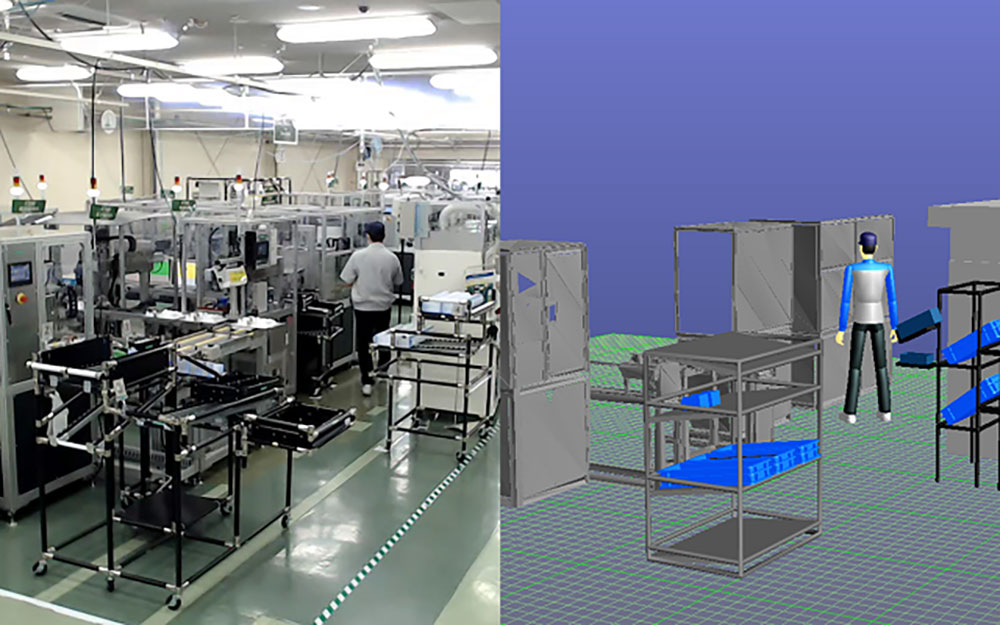Engineer Amitkumar Shrivastava’s approach to reliable AI development
Fujitsu / April 25, 2023
Artificial Intelligence, or AI seems to be in all applications—from automated systems to trending natural language response services. But it still has some work to do when it comes to reliability. Simply put, it has a long way to go until people fully trust it. An AI expert in Fujitsu is tackling this very challenge head-on.
AI ethics essential to realizing a sustainable world
Amitkumar Shrivastava, Artificial Intelligence Unit Technical Head in Fujitsu India, says it is impossible to foster a sustainable society without AI ethics.
Fujitsu regards him as one of the company’s top engineers certified as a “Global Fujitsu Distinguished Engineer.”
Amitkumar also says it is unrealistic to monitor all AI processing sequentially and judge whether AI’s conclusion is acceptable or not. He advocates for a more comprehensive and nuanced approach to AI ethics.

Amitkumar Shrivastava, Global Fujitsu Distinguished Engineer, Technical Head-AI, Fujitsu India
Amitkumar's team in India along with the Converging Lab Japan contributed to the development of “Actlyzer digital twin linkage technology” (*1)—Fujitsu’s cutting-edge technology that uses AI for action recognition.
The developed system utilizes semi-automatic camera calibration to accurately capture human motion in 3D and analyze actions. The device is designed to be installed at a location where it can monitor people’s movements.
It is already in use by some manufacturers in factories where it monitors employees’ movements around machines. Businesses can analyze data from the Actlyzer to plan additional training for employees or optimize work patterns to increase productivity and safety measures. The systems can identify potentially hazardous behaviors to help employer prevent accidents before they occur.
Amitkumar says that he is delighted that his team was involved in the solution that can contribute to worker safety and creating a smart factory.
(*1)Digital Twin: Technology to replicate places and people within a computer to conduct various simulations and send feed backs to reality.

Actlyzer Digital Twin: 3D Action Recognition
Amit's team is enhancing Actlyzer for other businesses, such as retailers, by adding features like detection of out-of-stock items on shelves. This feature helps retailers avoid negative impacts to their business and reputation by restocking and resolving issues before customers are affected.
He says the tech can also provide important insights for shop owners by analyzing customers’ behaviors while they make a purchase in shops or when they are making a purchase decision.
“Actlyzer can analyze customer’s behavior without acquiring any private information, like facial data. This would be a major advantage for retail companies that value customer privacy,” he says.
Establishing AI ethics essential for responsible and safe use
Despite the many upsides, Amitkumar is also aware of AI’s potential risks. He stresses that Actlyzer strictly adheres to data privacy and security protocols.
He recognizes concerns about AI among consumers. Some are worried that AI technology used by law enforcement agencies could lead to increased surveillance, while others say it could also be programmed to make crimes more sophisticated.
He says “It is important to keep in mind that AI is a double-edged sword, and it is also essential to recognize that any emerging technology will bring potential benefits, drawbacks, and a sense of uncertainty”.
And that is why the ethical implications should be considered before providing open access.
“To ensure responsible and ethical use of AI, we need to improve data quality and diversity. Researchers, developers, and policymakers need to thoroughly examine the ethical implications of AI and engage in ongoing dialogue and collaboration to address them.”
“It is essential to establish and regularly update clear standards, policies, and guidelines around AI, while educating the public about its capabilities and limitations.”
He also stated that it is important to take every possible measure to protect machine learning models from cyberattacks.
Amitkumar’s interest in AI goes back to his first year of university.
“I encountered a mysterious Unix black screen in a lab, which further ignited my interest. I got my first desktop computer around this time and installed the OpenBSD operating system, which proved to be a complex challenge as my first OS.” He says he was drawn to log and pattern analysis while struggling to fix things that required extensive analysis.
“My love for playing chess made me inclined towards game theory and decision-making, which are fundamental concepts in AI. This is how, knowingly or unknowingly, I developed a machine learning and AI mindset,” he added.
Developing AI Talent
Amitkumar and his team members are just as committed to social causes as they are about helping customers transform their businesses. He believes that educating engineers holistically is essential for AI development.
He stresses the need to train engineers in a technical background that includes computer science, mathematics, and statistics. He also says collaboration and communication skills are necessary to work effectively with internal and external partners.
Amitkumar says he wants to do more in upskilling new talent for AI by training the younger generations, including creation of personalized e-learning systems for children so that they can achieve economic and social wellbeing.
As an AI leader at Fujitsu, he continues to drive responsible innovation today with the belief that AI technology can make the SDGs a reality and make this world a better place for everyone.

Editor's Picks










